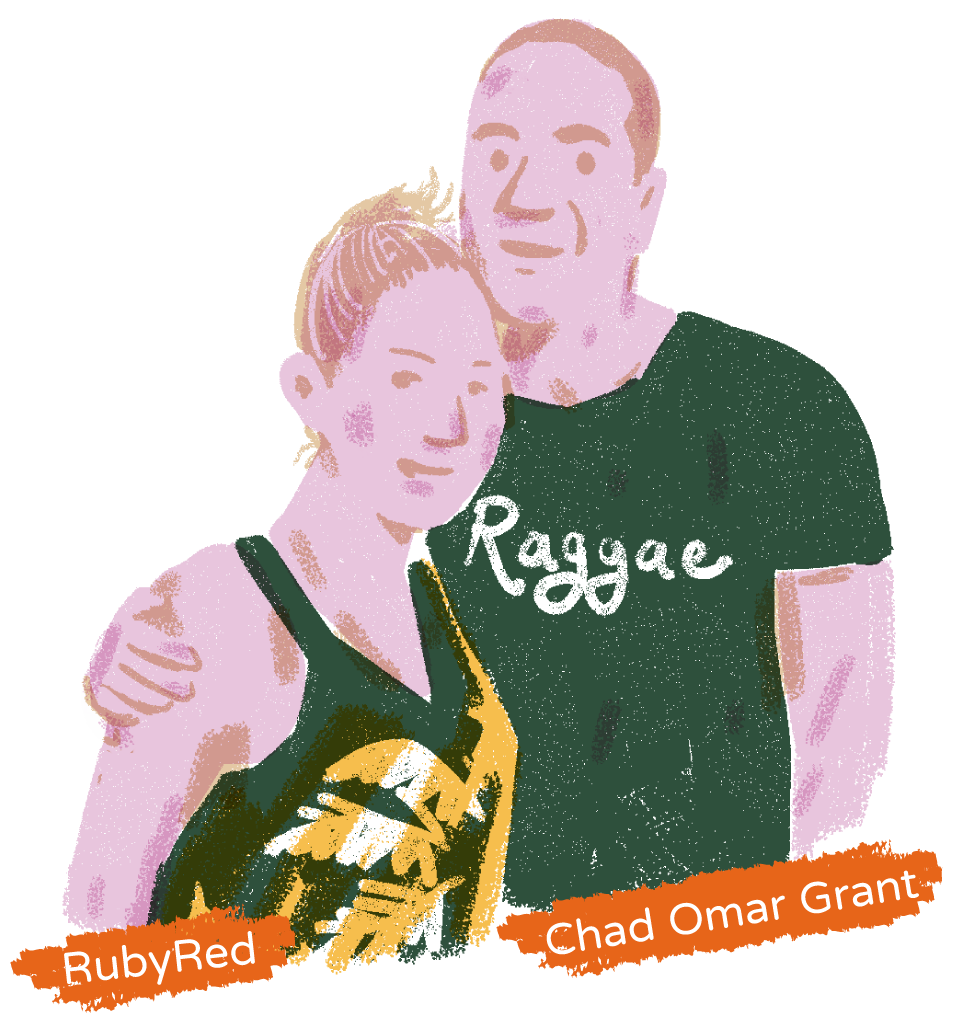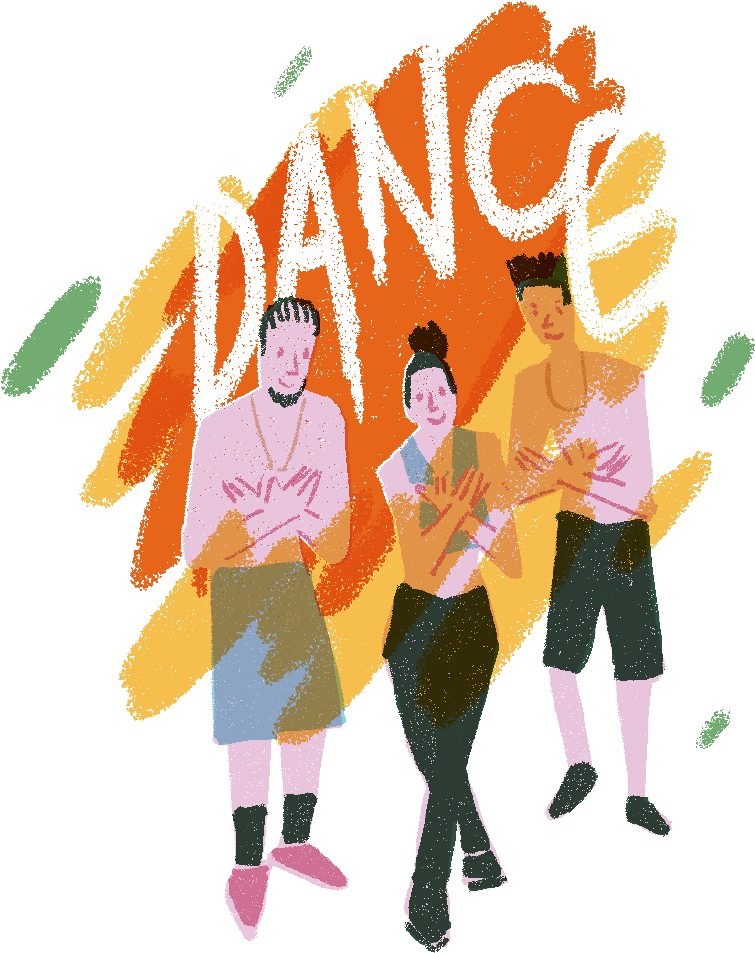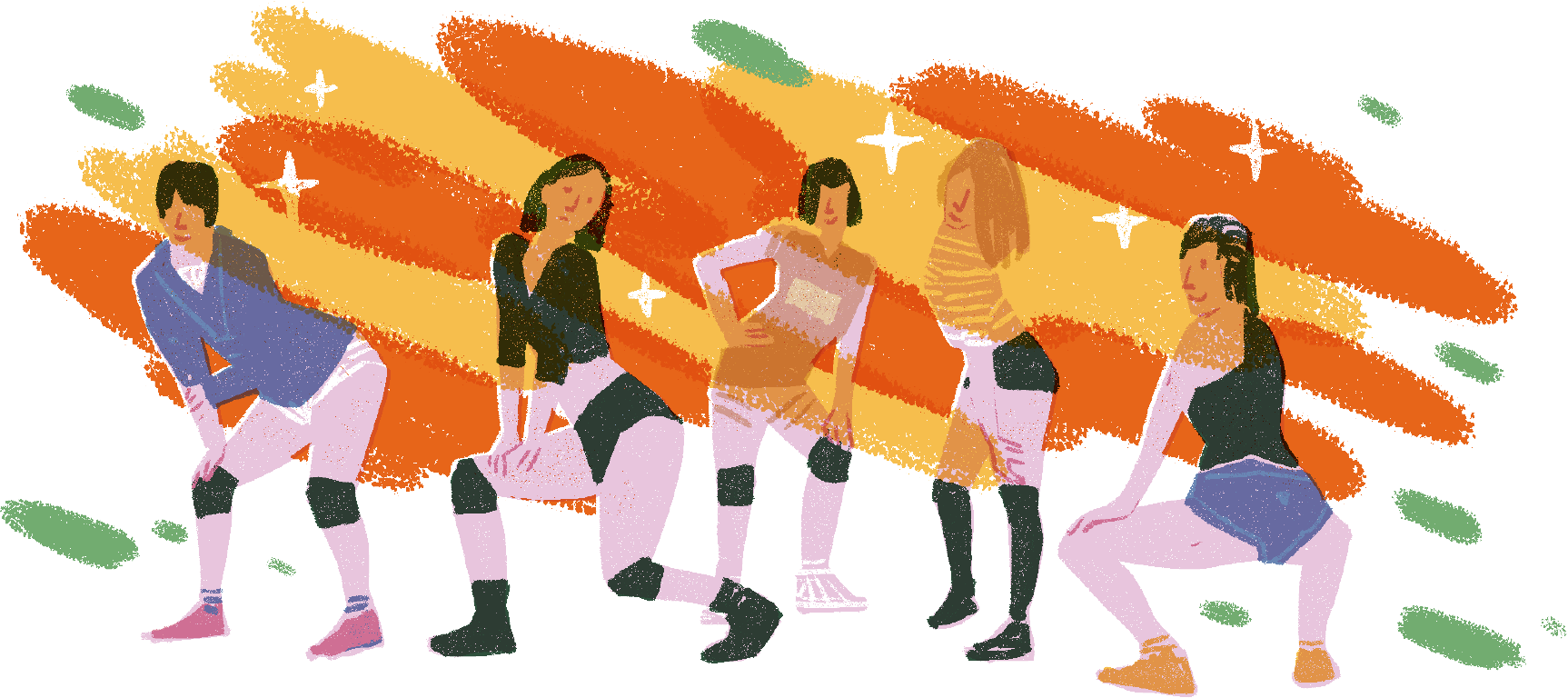RubyRed, half Seediq and half Hakka, survived her difficult teenage years with her passion for dancing, and danced her way into a cross-cultural marriage. She has been promoting the reggae culture with her Jamaican husband, Chad Omar Grant, from the Canada. With empathy, they try to understand each other's life and culture, and resolve the most difficult issue of cross-cultural marriage, which is cultural difference.

The petite RubyRed (Su Li Xue-jing, indigenous name Habaw Hana) generally wears casual dresses and is very friendly and easygoing, completely different from her daring and sexy image on stage. Prior to the interview, she posted 1,500 facemasks to the States. With a keen interest in black culture, RubyRed started a program on her Facebook to raise facemask after George Floyd, an African American male, was killed due to excessive police enforcement in the States, in support of her African American friends fighting for human rights.
Her Jamaican Canadian husband Chad Omar Grant sits quietly on the side, listening to his wife talk. From the opposite ends of the earth, RubyRed and Chad met 11 years ago because of their shared love for music and dance. Now married for 8 years, they have a 4 years old son Momotaro.

Passion for Street Dance
Helped Her Through a Difficult Youth
RubyRed is half Seediq and half Hakka, raised by her grandparents because her parents were divorced. Originally from Hualien, they relocated to Falangaw Village in Taitung, but her grandparents were so busy operating a hotel that they didn't have enough time for her. RubyRed grew up with the kind of loneliness and alienation that no words can describe.
“When I was really young, a young indigenous woman came to stay at our hotel, and she played me music by Janet Jackson.” Even though it was years ago, RubyRed can still picture vividly how the young woman danced spontaneously, shaking her hair. Her young mind completely struck with awe. Ever since then, whenever RubyRed heard music, she couldn't help but move her body. L.A. Boyz, the all-boy street dance crew popular back then, was her favorite group.
The years of loneliness as a teenager led to RubyRed's amazing moves. During that rebellious period, she did not get along well with her family, and many a times she wanted to try out her luck in Taipei but reality kept her cooped up in Taitung. She later got into National Taitung Senior Commercial Vocational School and started the street dance club. Even though she often had to wake up at 7 in the morning for school, and work part-time after school until late, she danced like there's no tomorrow whenever she had the time, breaking out all the sweat until she was exhausted, and rid of all the negativity in her. “It's a good thing I had my dancing, otherwise, I can't imagine what I would've become....” Recalling the difficult past, tears roll down RubyRed's cheeks.
Upon graduation from senior high school, she was finally able to move to Taipei. Being alone in a strange city with no one else to depend on, she must make her own living. Life was hard then, but she still had dancing. RubyRed practiced dancing with Joe in Ximending, the popping master in Taiwan. The moves nurtured by her loneliness won her champions in many street dance battles, and made her name.

10-min Dance Duet
Leads to Soul Mate
When she was 22, RubyRed met Chad while dancing at a nightclub. A DJ from the States, Chad was visiting relatives in Taiwan and due to leave for Japan to work in a few days. “I saw her through the crowd, danced two songs together, then I left her my phone number,” says Chad. Unlike the other girls dressed to show of their curves, RubyRed was dancing hip hop in her baggy T-shirt like no one else's business, he couldn't help but go over and ask her to dance.
Because of her family, love is hardly factored in in RubyRed's plan for life, and never had she imagined that she would get married. But this dance duet which lasted no more than 10 minutes drew her to Chad as if by destiny. They maintained a long-distance relationship between Taiwan and Japan until Chad returned to Taiwan, and eight years later, they walked down the aisle.
“Do you know reggae?” Chad introduced reggae to his wife, a music genre originated from his homeland Jamaica, along with its affiliated dances, Dancehall. RubyRed had always been attracted to black culture, the wild passion of reggae dance is very similar to the music and rhythm of indigenous music. Therefore, she started studying reggae culture, with dance and music becoming their shared language.
“Since the moves are anything but conservative, sexy reggae dance is often misconstrued as sex culture in Taiwan,” explains RubyRed. Reggae dance places emphasis on the fast movements of the breast and hip, many people look at it in a biased manner and thus believe that women who dance sexy moves must be promiscuous as well. RubyRed has also been frustrated because of such misunderstanding, but Chad continues to encourage her to spread the word that reggae dance is a culture that is healthy, sexy and full of strength. The two of them started the first reggae magazine in Taiwan, and set up a studio, traveling all over Taiwan to organize events and promote reggae music and culture.

Resolve Cultural Differences
with Empathy and Tolerance
But cultural differences in life far exceed those in dance. Rather straightforward, Chad says that they have both been overcoming cultural differences since the moment they first met.
“In the States, we can dance with our bodies almost touching, but she shouted her protest.” Chad later understood that Asians find intimate body gestures to be offensive. Or, for example, the first time he brought RubyRed home to the States, she was very nervous and worried that her future mother-in-law won't like her. Chad found that unbelievable, and said to RubyRed over and over again, “if my mother doesn't like you, that's her problem, it won't change my mind about marrying you.” Chad also takes the privacy and subjectivity of their child very seriously. Until the child can make his own decision, RubyRed is not to post pictures of their son on social networks.
But the couple have a common understanding about their child's education, and that is he must learn about his own cultures and family histories. Chad is therefore dedicated to researching indigenous culture, no less passionate than RubyRed for Jamaican culture. In addition to reading books and literature, they also watch films together to learn about the cultures of their respective countries. For example, when watching Seediq Bale, the film about the Wushe/Musha Incident in 1930s, Chad was in tears because his ancestors were once slaves who fled Jamaica to start a new life in north America. Seeing the Japanese oppression against indigenous peoples struck a cord in his heart.
Encouraged by Chad, RubyRed worked up the courage to ask her grandmother oon her mother's side about the whereabouts of her mother. Surprisingly, her grandmother is not at all against cross-cultural marriage, and kindly gave Chad an indigenous name, Kawas. What had set out to be a quest for RubyRed's root, turned out to be Chad, the foreigner, finding the familial happiness he hasn't experience in a while right there in the indigenous village.
“I'm sure all cross-cultural marriages will require some getting used to. Only by understanding and embracing one another will the marriage really last.” RubyRed says softly, “clich?, but I think love is the reason cross-cultural marriages can continue to overcome difficulties and move forward.” Marriage is like a dance duet, there are bound to be missteps. But as long as you have the rhythm and tempo that best suit you, the dance can go on and on.





